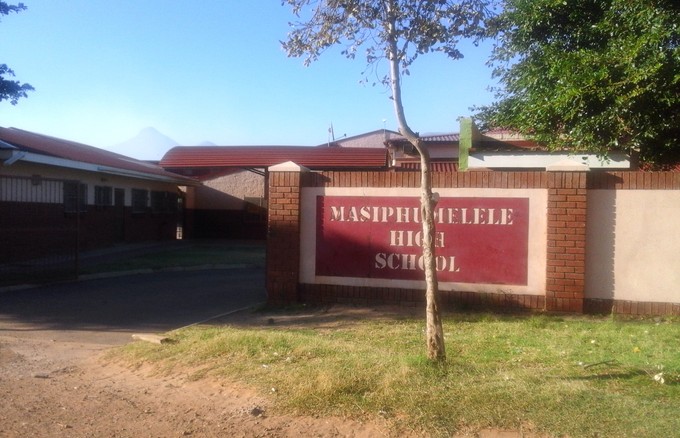Less than half of Masiphumelele matrics pass
Violence and disruptions blamed for poor results
Fewer than one in two Grade 12 pupils at Masiphumelele High School passed matric in 2016.
The matric pass rate dropped from 70.1% in 2015 to 48.9%. The school had 239 matrics out of 1,198 students last year.
The school is now classified as an “under-performing” school, defined by the Department of Education as a school with a pass rate of under 60% in the National Senior Certificate.
The national pass rate for matrics was 72.5% and the pass rate in the Western Cape 86%.
The beginning of the school year was marked by protests against the principal. Gang violence amongst students also erupted at the school which left one student dead.
The chair of the School Governing Body, Silulama Mtirara, said the students had been affected by the violence in the community.
“A lot of things happened in the community that were violent and some of these children were in the forefront of that. Not once have we sat down and looked at the impact it may have had on them.”
“This year we had gang violence at the school which we have never had before. We had protests, and all those things meant days out of the classroom. Sadly the grade 12s are the ones who suffer the most from all those things,” said Mtirara.
He said there was a lack of cooperation from parents.
“Teachers have difficulties in teaching because the children are out of control, and when parents are called for meetings they do not attend. We need to work hand in hand with the parents,” said Mtirara.
One teacher told GroundUp that poor attendance had been a problem.
“The attendance at school was not good at all. Even the people we hired to help tutor were having difficulties because there was no interest shown by students, the classes were not taken seriously. Some tutors even stopped,” he said.
Nikita Mbokothwana, 17, who passed matric, had hoped to study nursing but her maths marks were not good enough. She said she was proud of her marks after a hard year at the school but embarrassed about the school’s low pass rate.
“I tried my best. At the beginning of the year we had to stay at home and study by ourselves, then the principal was suspended. He was strict, yes, but things were going smoothly. When he was around, we didn’t have these problems.” said Mbokothwana.
Western Cape Education Department spokesperson Jessica Shelver told GroundUp that each education district would work out a plan to support under-performing schools in a bid to get the pass rate above 60% in the 2017 matric exams.
Letters
Dear Editor
We must ask "what causes the violence described in the article?" The community of Masiphumele struggles with rape, murder, drugs and crime and feels that it does not have the support of SAPS. For example, a young boy, Amani Pula, was brutally murdered and a lady was raped the same day. Protests occurred and community members were arrested which enraged the community more. The entire community of Masiphumelele, especially the children, needs counselling.
Until these issues and the terrible living conditions in Masiphumele are addressed, children will continue to be traumatised and perform badly in school.
© 2017 GroundUp. 
This article is licensed under a Creative Commons Attribution-NoDerivatives 4.0 International License.
You may republish this article, so long as you credit the authors and GroundUp, and do not change the text. Please include a link back to the original article.



